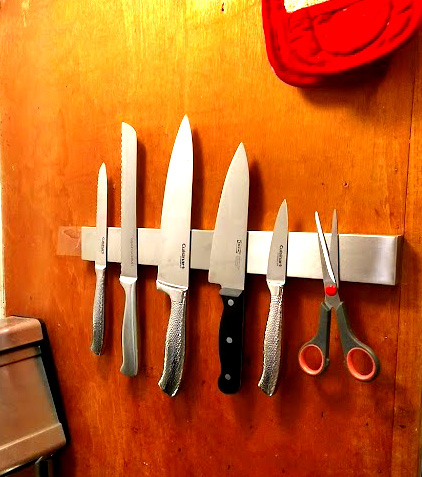Why Americans are Bad at Cooking and Eating

Why are Americans bad at cooking and eating?
Of course, there are exceptions to these generalities - but overall, Americans are bad at cooking. And eating. Well, I suppose you could say we are very good at consuming calories - way, way too many, and non-nutritious calories at that.
Nothing of the below is new, nothing below is even radical. Harsh, perhaps, but to whom? This harsh reality is all we know as Americans in the 21st century. But perhaps becoming aware of it can give us the knowledge to improve it.
Table of Contents
Laying the Foundation for a Poor Diet - Set up to Fail
In the 1950's, the new fad became canned foods that could be opened, warmed, and served in almost no time at all. It became a status symbol to have the latest kitchen gadgets to make cooking fast and easy, and the beloved housewife had more time to sit and pamper herself.
And the culinary world suffered for convenience. Mushy green beans haunted boomer's childhoods, where many of them learned that all vegetables were grey and gross. A lot of ingredients we take for granted today simply were not available back then - avocados? Indian spices? Not even mentioned in cook books for the era.
Fast forward to today, and we are more overworked and underpaid than ever before. Pensions are all but gone, and career stability is a thing of the past. We no longer have the number of housewives, as now two incomes are necessary to survive. The unions that once were, no longer exist, and worker's rights have all but faded away with them - we are working long hours, a slave to our wages, with no social safety net and healthcare tied to your company - so we are trapped in our soul-crushing jobs.
And the boomers, who were raised with mushy green beans, are not likely to seek out the fresh green beans to cook. They love their salt-laden snacks, doritos, english muffins, and snack packs. Passed down to the next generations, we are taught to value convenience over things like nutrition, or even flavor. Hell, even fruits and vegetables are now strictly grown for appearances and how well they transport, sacrificing what rich flavors they were originally meant to have.
The Illusion of Choice
Hustle. Work.
This type of lifestyle leaves little room for cooking and preparing food. So again, we reach for the fast, easy choices - and often subsidized to be cheap, by our own government.
Not only all of the above, but we have many food desserts - areas where the nearest grocery store is a drive away, so low-income families have little choice other than to eat
Fueling Addiction
The Fast Food industry and Sugar industry are happy to keep you addicted, advertising to children as soon as they can sit in front of a screen. They advertise happiness, cool lifestyles, and if you want to be happy and cool, you'll eat it too, right?
Sugar, salt, and fats are highly addictive. Yes, similar to elicit drugs even. These foods easily allow you to slip into a habit of eating not just the addictive foods, but eating more than you should or normally would. Sugar specifically is great at tricking your hunger cues into overdrive, at the same time as stifling your "fullness" hormones. It's a one-two punch, which leaves millions of people craving for more.
In addition to the vicious cycle, it changes the way food tastes to your brain. After eating highly palatable foods, rich in salt, sugars, and fats - vegetables will taste like nothing, or even bitter.
All of the above makes it incredibly difficult to change a bad diet overnight, or even for the long-term.
Diets vs. Dieting
Fad diets only work temporarily, if you only abide by them temporarily. To maintain a healthy weight, you need to change your diet - forever.
So, those people on Keto diets who lose a lot of weight - why does that work? Well, a couple reasons.
Anytime you're limiting your diet, it provides opportunities to eat less calories. This works similarly with vegetarians, vegans, and others.
If you subscribe to a diet that constricts the types of foods you eat, you need to be more careful when eating out - You're less likely to eat fast food, as those places have plenty of cross-contamination, or simply not good options that would work for your dietary restrictions.
You're also more likely to pay closer attention to what you're eating - more likely to check nutrition labels and ingredients to make sure


